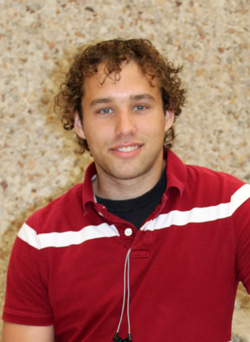
Short Bio:
Corey Keith worked with Dr. William Charlton on a project to investigate trace uranium-236 content variations in world-wide geologic uranium deposits. Nuclear signatures, whether for forensics or safeguards applications, utilize two broad class??es: comparative and predictive. While compar??ative methods analyze a sample against a data??base of previously measured samples, predictive signatures utilize the underlying physics of the system to draw conclusions about the origin of the sample. Keith’s work evaluates the potential use of uranium-236 variation in natural uranium as a predictive signature for uranium ore concen??trate. The limitations and capabilities of using uranium-236 were investigated through measurement techniques, production modeling, and Bayesian analysis. Keith received a B.S. in physics from University of Texas at El Paso in 2010. He went on to receive a M.S. in health physics from the University of Nevada, Las Vegas in 2012. He defended his dissertation in November of 2015 and graduated with a Ph.D. in nuclear engineering in May of 2016.
NSSPI Publications:
- C. Keith, "Investigation of Trace U-236 Content Variation in World-Wide Geologic Uranium Deposits", Ph.D. Dissertation, Nuclear Engineering, Texas A&M University, College Station, TX (2016).
- Robert M. Zedric, Scott L. Stewart, Blake A. Palles, Timothy W. Jacomb-Hood, Stephen B. Gerlt, David A. Vermillion, Corey Keith, Marlene Bencomo., "Top Things to Know About Special Nuclear Material", INMM 56th Annual Meeting, Indian Wells, California, 12-16 July 2015.
- C.C. Keith W.S. Charlton, "Investigation of Trace U-236 Content Variation in Geologic Uranium Deposits", 55th Annual Meeting of the Institute of Nuclear Materials Management, Atlanta, Georgia, 20-14 July 2014.